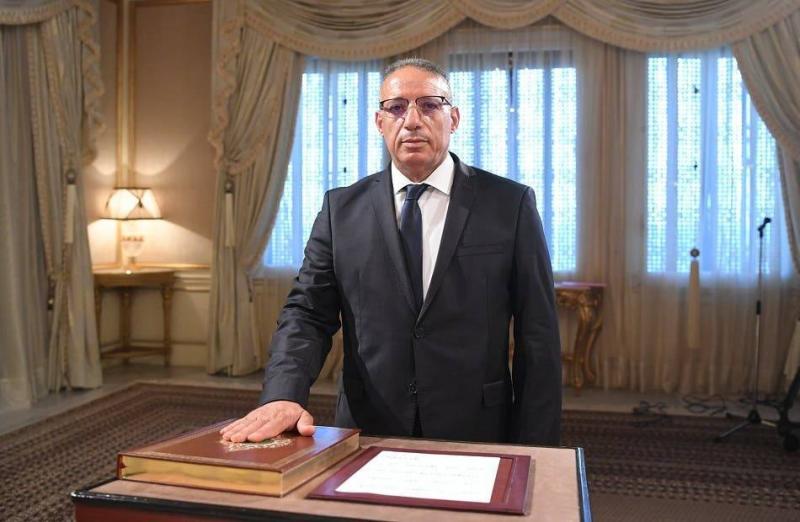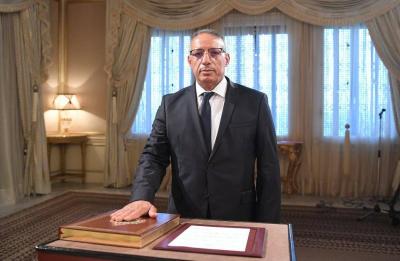Reda Garslawi took the constitutional oath as Minister of Interior in Tunisia, following his appointment by President Qais Saied. During the oath-taking ceremony, President Saied stated that Garslawi's appointment comes in accordance with the constitutional provisions of Article 80. The Tunisian president accused unnamed parties of trying to pull strings behind the scenes, affirming that Tunisia is a state of institutions that operates to serve its citizens. He emphasized that there is no room for manipulating state structures or attempting to ignite conflict within the country.
Meanwhile, the Tunisian General Labour Union announced its preparation of a roadmap to be presented to President Qais Saied to help the country out of its current political crisis. Union officials stated that the labor union has consulted with experts in economic, political, and constitutional law to find a way out of the crisis that can be proposed to the president. Recently, President Qais Saied held talks with the labour union since the onset of the crisis.
On her part, Shiraz Al-Shabi, deputy head of the “Heart of Tunisia” bloc, one of the largest political parties in the country, stated that the party rushed its initial reaction to President Saied's decisions. She mentioned that the party has retracted its response to the president’s decisions, clarifying that the “Heart of Tunisia” bloc always calls for de-escalation. She affirmed that it is the president's right and duty to intervene to put an end to the political and economic crisis, stressing that the failures of the ousted Prime Minister Hicham Mechichi's government cannot be denied.
Furthermore, the Tunisian Democratic Current Party held the ruling system, led by the Ennahda Movement, fully responsible for the deterioration of conditions in the country. The party expressed its understanding of the exceptional measures taken by President Qais Saied in light of Tunisia's dire circumstances, emphasizing the need for these measures to be accompanied by constitutional guarantees aimed at protecting rights and freedoms, especially concerning the principle of separation of powers and its independence.




